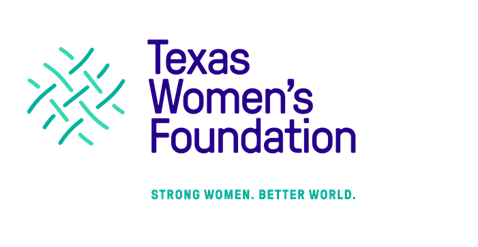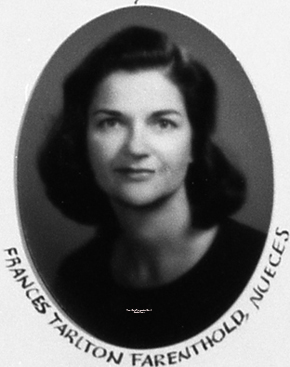Image from the Legislative Reference Library
Born: 1926 (in Corpus Christi)
Noted For: Frances “Sissy” Tarlton Farenthold is noted as a former Texas legislator, a two-time candidate for Texas governor, a vice-presidential nominee, and the first chair of the National Women’s Political Caucus.
Today, former Texas legislator Sissy Farenthold is known as one of the leading champions of the Equal Rights Amendment, both at the state and national levels.
But when the University of Texas Law School alum joined the Texas House of Representatives in 1969, she didn’t support the ERA. “I was a dutiful daughter of the State Bar of Texas, and the Bar didn’t support the amendment,” Sissy later recalled.
Eventually, Sissy broke ranks with the Bar, whose arguments against an amendment guaranteeing equal legal rights to women she found “vacuous”, and became an important advocate for the amendment, working in collaboration with Texas House of Representatives members Barbara Jordan (the only other woman in the Texas Legislature at the time) and Rex Braun from Houston. The bill was approved by both the House and the Texas Senate, and then presented for approval to Texas voters (who said “yes”) in November of 1971.
Sissy then turned her focus to the passage of the federal Equal Rights Amendment, which would sadly fail to achieve ratification. Despite this defeat and other setbacks in her career and personal life, Sissy’s presence as a key political figure in Texas and on the national scene continued to grow. She ran for Texas governor in 1972 and 1974 (losing both times to Dolph Briscoe), and she was also tapped as the first chair of the National Women’s Political Caucus.
In 1972, Sissy was nominated for Vice President at the Democratic National Convention, making her one of the first women in the U.S. to be named for vice-presidential consideration at a major party convention. She came in second place, garnering more votes than three men, including future U.S. president Jimmy Carter.
After leaving the state legislature, Sissy served as president of Wells College, taught at the University of Houston, practiced law, and continued her advocacy in international women’s and human rights issues, working with a number of high-profile institutions. She also founded the Public Policy Leadership Education Network, a public policy training initiative for women college students.
Additional Learning: “History of the U.S. Voting Rights Act”—National Geographic

